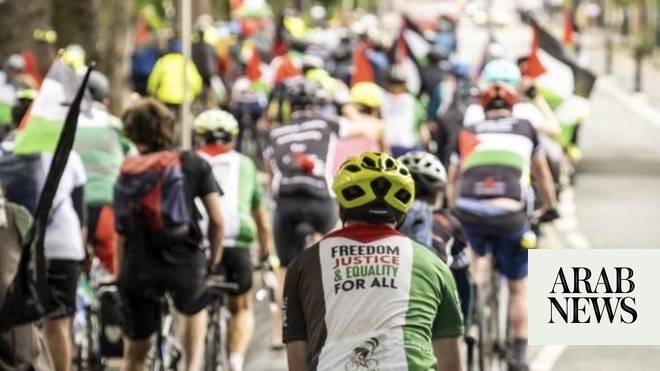
DHAKA: The Bangladeshi military was deployed to the streets to impose a nationwide curfew on Saturday, after more than 100 people were killed in clashes between police and students protesting government job quotas.
The curfew follows a communications blackout that has left the country of 170 million cut off from the world. Television channels were off air and most local news websites were down as the government shut internet services a day earlier.
“Army members will operate in aid to the civil administration under the guidance of district administrators and city commissioners,” Home Minister Asaduzzaman Kamal told Arab News.
In the capital, the military joined riot police and thousands of Border Guard personnel after the Dhaka Metropolitan Police banned all gatherings amid increasing numbers of casualties.
Students have been demonstrating since the beginning of July against a rule that reserves a bulk of government jobs for the descendants of those who fought in the country’s 1971 liberation war.
At least 103 people have been killed in the past five days and thousands injured, according to a count based on reports in the local media. On Friday alone, at least 44 people were killed in Dhaka, which saw intense clashes between protesters, government supporters and security forces.
Air Commodore (Rtd) Ishfaq Ilahi Choudhury, a security analyst, told Arab News that the nationwide military-backed curfew and the amount of violence across the country were “something unprecedented.”
He was referring to reports that numerous administration offices were set on fire and government vehicles vandalized on Friday. On Thursday, the headquarters of a state-owned television station was set ablaze.
“We have not seen such vandalism earlier in the country where many significant government establishments were vandalized and set on fire,” Choudhury said.
The government abolished the controversial quota system after student protests in 2018, but the High Court reinstated it in June, triggering protests.
An appeal hearing is expected at the Supreme Court on Sunday morning.
Under the quota system, 56 percent of public service jobs are reserved for specific groups, including women, marginalized communities and children and grandchildren of freedom fighters — for whom the government earmarks 30 percent of the posts.
These quotas, which reserve hundreds of thousands of government jobs, hit young people directly.
The country’s unemployment rate is the highest among people aged between 15 and 29 — more than a fourth of Bangladesh’s population — who constitute 83 percent of the total unemployed.






